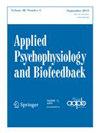Effectiveness of Mindfulness-Based Stress Reduction on Salivary Cortisol and α-amylase Level, Anxiety and Depression in Students: A Randomized and Parallel-Group Clinical Trial
Abstract
The current trial aimed to assess the effectiveness of Mindfulness-Based Stress Reduction training on salivary cortisol and α-amylase levels, anxiety and depression of students. This research was an experimental trial with a pre-test-post-test design and a control group. The statistical population of the research included all students studying in the universities of Khoy, Iran in 2021. The sample consisted of 30 people who were assigned to two experimental and control groups equally. Stress, anxiety and depression scale (DASS-21), General Health Questionnaire (GHQ-28) and saliva samples were passively taken by ELISA laboratory method with special kits. Data analysis was done using an independent t-test and analysis of covariance using IBM-SPSS version 26 software. The results showed that MBSR training on general health, alpha-amylase level and alpha-amylase/cortisol ratio of experimental group participants was more effective than the control group (P < 0.05). However, it was not effective on students’ cortisol levels (P > 0.05). According to the findings, it can be argued that MBSR training has been able to promote the psychological (DASS and general health) and hormonal (alpha amylase level and alpha-amylase/cortisol ratio) mental health indicators of the experimental group participants compared to the control group.

 求助内容:
求助内容: 应助结果提醒方式:
应助结果提醒方式:


